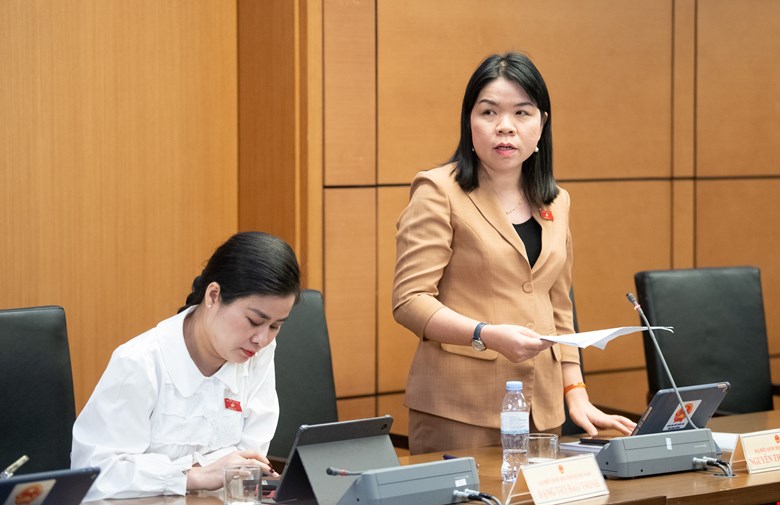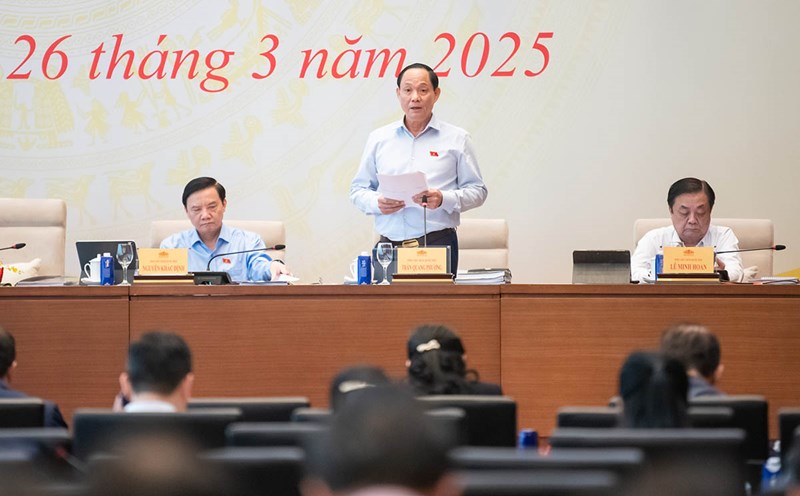On the afternoon of May 12, the National Assembly discussed in groups the draft Law on Personal Data Protection.
Delegate Tran Van Khai - Vice Chairman of the National Assembly's Committee on Science, Technology and Environment - said that Resolution No. 57-NQ/TW emphasizes the need to exploit the full potential of data, considering data as "new resource... new means of production" in the digital economy.
However, the delegate said that this requirement has not been fully institutionalized in the draft law. The draft is currently aimed at data protection, but has not focused on the mechanism for promoting data value. Clause 5, Article 7 of the draft absolutely prohibits "buy and sell personal data".
This regulation protects privacy, but lacks flexibility to encourage data exploitation and sharing for development. The Party's policy of "eliminating the mindset of "if you can't manage it, then ban it" requires instead of absolutely banning it, there must be a management method that allows data sharing and commercialization under reasonable control.
If the law does not pave the way for safe data exploitation, it will be difficult for us to build a healthy data market. Personal data is at risk of being "illegally" bought and sold in the underground market, the State cannot take advantage of this digital resource.
The draft law lacks specific regulations to institutionalize the data economy in the spirit of Resolution 57. If the above content is not supplemented promptly, the consequences will be very serious.
Firstly, the national digital transformation process is at risk of slowing down and falling behind.
Second, there is no mechanism for data economy, a transparent data market is not formed; data continues to be illegally bought and sold, violating the privacy of people and businesses lacking data for innovation.
The delegate proposed to replace the regulation on absolutely prohibiting the "buy and sell of personal data" with a ban on buying and selling data without the consent of the data subject or for illegal purposes. At the same time, adding data subjects to voluntarily share their data to receive benefits will not be considered a violation if complying with data protection principles.
Supplementing regulations on the State to encourage the sharing and use of anonymous or compiled data for research and technology development.
Thereby forming an open data ecosystem between the state and businesses, promoting the development of the data economy, ensuring no infringement on personal privacy.

Delegate Nguyen Thi Ngoc Xuan (Binh Duong Delegation) said that currently, many subjects go to personal social networking sites, especially celebrities and influential people in the social community to get information, exploit personal data that the subject has posted and edited and edited.
These subjects then posted on their social networks to increase views, interactions, and comments, causing serious consequences for data subjects.
Therefore, the delegate recommended adding the act of collecting and processing personal data without the consent of the data subject causing serious consequences to prohibited acts, thereby criminalising this act.
The delegate also proposed adding regulations on criminal acts in the field of personal data protection, especially the act of buying and selling personal data. Because this crime is now becoming more and more popular and causing serious consequences for society, the current law has not yet stipulated crimes in this field.











